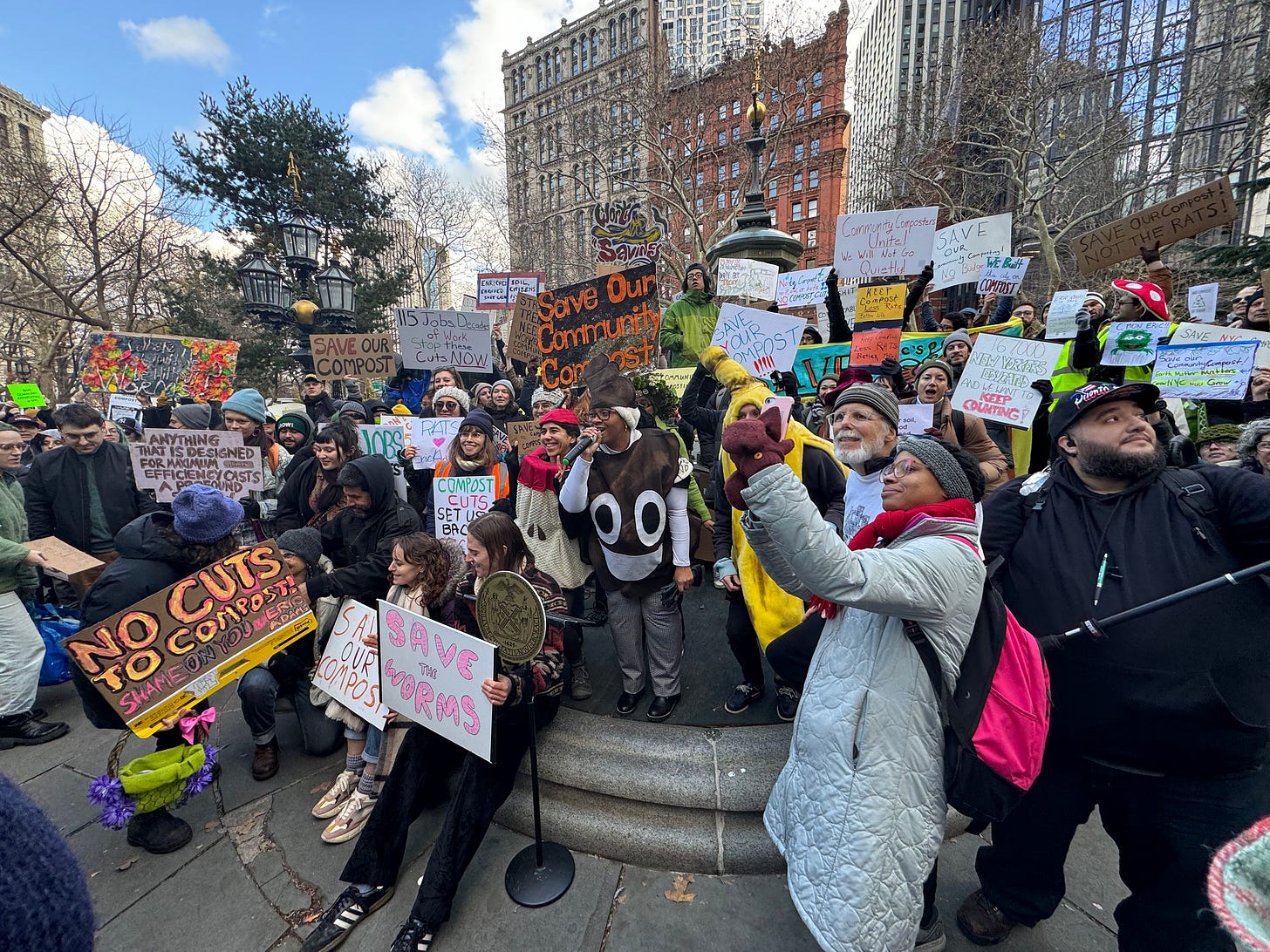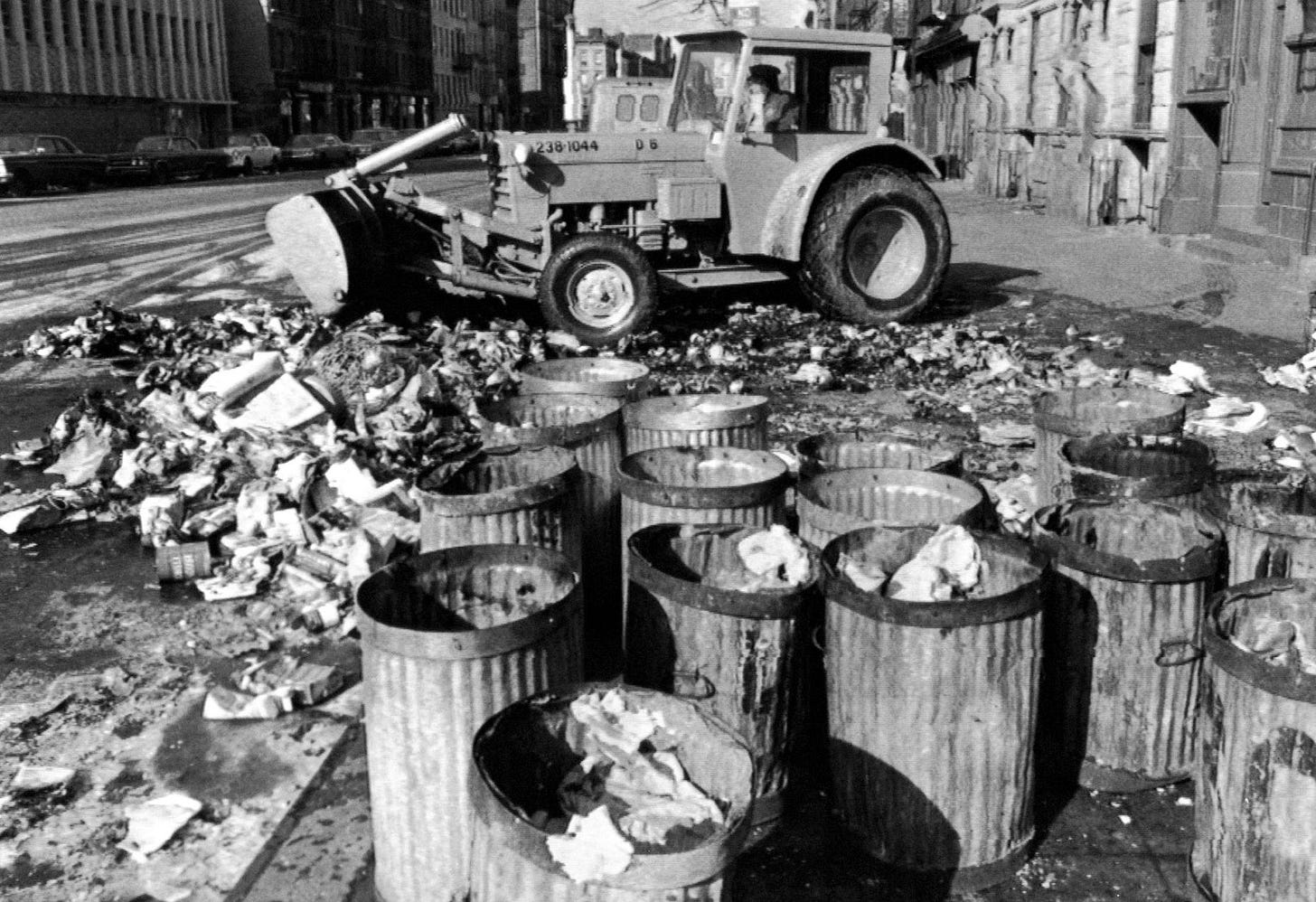Garbage politics: whose trash, and what kind, get prioritized?
Looking to histories that can inform how we understand the state of composting options (or lack thereof) in cities like New York.
If you’ve only ever lived somewhere where you throw your trash in the bin and then never have to think about it again, it’s easy to take waste management infrastructure for granted. But how and for whom trash gets picked up is far more complicated – and political – than it might seem on the surface.
I was reminded of this while working on my latest story for the Guardian, which is, in part, about Mayor Eric Adams eliminating the budget for community composting. The recent cuts were devastating because they eliminated dozens of green union jobs and removed access to composting for many New Yorkers, but also because they’re dismantling “the organizations that taught New York City about composting” for the sake of saving 0.006% of the citys’ budget. When cities invest and disinvest in programs like this—as New York has been doing for decades now—it degrades public trust, making it much harder to get citizens to participate at the scale needed to make these programs pay for themselves.

So what would it take to build out the kind of composting system in New York that could provide a reliable, lasting, climate-friendly solution for the organic waste produced by the city’s 8 million people?
In my pursuit of answers to that question, I came across a story from the late ‘60s that I haven’t been able to stop thinking about. The Young Lords, a group of Puerto Rican activists inspired by the Black Panthers, were looking to clean up East Harlem, which was infrequently serviced by garbage trucks and street sweepers.
“The Young Lords initially went to the local sanitation office to ask for better service, and even tried bagging up the trash themselves to make collection easier. But their requests were essentially ignored... That’s when the group decided to change their strategy: they began dragging the uncollected trash into the streets, making the roads impassable for car traffic. Repeated actions of this kind, dubbed “the Garbage Offensive”, eventually forced the city to respond and start cleaning up the long-neglected neighborhood.”

The Young Lords are just one example of a group of people organizing on behalf of their community to get their waste management needs met. The story makes me think back on others I’ve reported, too, from a group of moms in Manila creating their own composting and recycling infrastructure to informal waste-pickers in Bangalore unionizing to ensure better care for the people who make plastic recycling possible.
If you’re a New Yorker trying to figure out what’s next in the community composting fight, there are some hints of what’s to come, and how to be involved, at the end of my story. But regardless of where you live, I hope it’s clear from all of these stories that figuring out how to manage waste in a way that’s good for people and the climate sometimes takes communities banding together and fighting hard — and when they do, sometimes they win.
I’ll leave you with “My Defeated Banner,” a poem by Najwan Darwish translated by Kareem James Abu-Zeid, because to love the composted earth is to love the bombed earth is to love the earth wherever you stand. May we stretch our arms wide enough to hold it all.
Wishing you an eternity at the breakfast table,
Whitney

